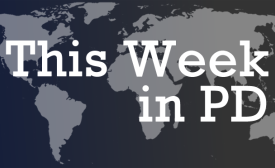middle east
As Israel seeks to end Hamas's latest war against it, the Obama administration flounders. In fact, the response of the president and his secretary of state has made the situation positively worse with regard to every relationship we have in the region. Opponents of terrorism and supporters of Israel struggle to understand the administration's approach.
Social media has transformed the way people receive and share information in both personal and business settings. Most importantly, businesses in the Middle East should always ensure that their use of social media is tailored to the specific cultural and demographic characteristics of the region.
Qatar’s World Cup organizers view this ground as a blank canvas for a new era in the Middle East, a way to advance their society and use soft power—i.e., the world’s most popular sport—to promote the country’s foreign policy.
Successful countries of the 21st century will be those that are skillful at public diplomacy, cultural politics, and alliance-building. In the past, because of our military power, we have not had to develop those skills. We will have to learn them if we hope to project power in the future.

Are there alternative ways to end the nearly month-long Israel-Hamas conflict?
What do the U.S., Argentina, Afghanistan, and Myanmar have in common? This summer, two opportunities enabled me to explore this question from my perspective as an American violinist who recently moved to Argentina from Afghanistan.
Americans are divided in their views of whether Israel's actions against the Palestinian group Hamas is "mostly justified" or "mostly unjustified," but they widely view Hamas' actions as mostly unjustified. Those results are similar to what Gallup measured 12 years ago during another period of heightened Israeli-Palestinian violence, and they are consistent with Americans' generally more positive views of the Israelis than of the Palestinians.

The Baker Institute for Public Policy has recently published a report titled, Changing Minds, Making Peace: U. S. Public Diplomacy Strategy in Support of an Israeli-Palestinian Two-State Solution, which emphasizes the important role of public opinion both in reaching and securing a peaceful agreement between Israel and Palestine and in preventing such an agreement. The role of U.S.







